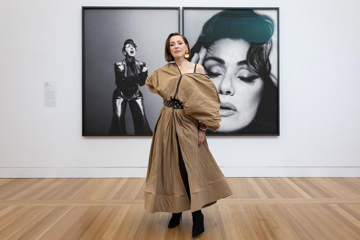Twice A Child
"I had big dreams I guess, but I also knew that my town was important to me and that I wanted to come back."

There's always been a strong narrative bent to the music of Brooklyn-based indie ensemble Okkervil River, chiefly due to the inherent literacy of frontman and songwriter Will Sheff. Naturally it wouldn't all work without the considerable charm of their rustic, folk-indebted rock'n'roll, but the words play an integral part in the band's indubitable emotional heft.
On recent studio album The Silver Gymnasium, Okkervil River take this penchant for powerful storytelling to a whole new level, the record a conceptual suite set in Sheff's boyhood hometown of Meriden, New Hampshire in 1986 – slap bang in the middle of his adolescence.
“I wanted to write a record that was about nostalgia to a certain extent and about missing the past, but which was also about what that feels like and why you feel that way, and where that comes from and how you process that,” Sheff explains. “The urge to make it didn't necessarily come out of any urge to glorify my own past, although to some extent that's what that record does. But it's [more] about the act of glorifying the past – what that feels like and why you would do that.”
“I felt that it had to be autobiographical – not necessarily because I felt that my story is more interesting than other people's, but because who else are you going to talk about but yourself if you're trying to be sincere about these things? I think if I'd spoken general platitudes about the past it wouldn't [resonate with] people in any way, so I felt like I needed to put something of my own on the table.”
Don't miss a beat with our FREE daily newsletter
When viewed through the lens of The Silver Gymnasium, Meriden seems a rather insular place, and Sheff attests that this is no mere distortion of childhood memories. “It was incredibly small,” he concurs. “There were about 300-plus people there and it was very rural and isolated. We had two TV channels. My dog used to sleep in the middle of Main Street because there were no cars coming down the road. It was a really isolated place. But it was a different time – the incessant rate of media changed everything a long time ago, you can be isolated now and still be vaguely aware of what's going on in the rest of the world. And I really like the contrast of the day-glo, synthetic aspects of the 1980s as they filter in to the attention span of a kid who's living in a totally rural environment, and a lot of The Silver Gymnasium is trying to contrast those two things.
Did Sheff manage a happy adolescence? “No, not really,” he reflects. “It wasn't miserable, but there was a lot of unhappiness. But at the same time I was always aware that I loved my town and I loved the people in it – even when those people were being super fucking shitty to me sometimes, I still felt there was something beautiful there. It's a magical place, it really is.
“I remember saying to a friend, 'I've got to get out of here. But I know that I'll come back eventually'. I was aware that it was very provincial and isolated, and I was aware that the people who had stayed there hadn't really done anything – kind of at all – with their lives, really. I mean that's a mean thing to say, but that's how it looked to me at the time. I had big dreams I guess, but I also knew that my town was important to me and that I wanted to come back.”
With this overt autobiographical aspect does Sheff feel that there's more of himself invested in The Silver Gymnasium than usual?
“Yeah, it does feel a lot more personal, although that wasn't necessarily the goal,” he muses. “Although I've felt invested in all of my records, and there are songs like (Shannon Wilsey On The) Starry Stairs [bonus track from 2007's The Stage Names, reworked as Starry Stairs on 2008's The Stand Ins] where I was very drawn to the character in that song, this porn actress named Savannah. I was really fascinated by her story. I've never seen a movie with her in it or anything like that, I just thought it was a sad story and it spoke to me; that's a song that really has very little to do with my experience, but that song is very personal to me. I've felt very connected to it ever since I wrote it, and I really relate to that character, so even when a song is not at all about me I still feel a connection to it. Some more than others.”







